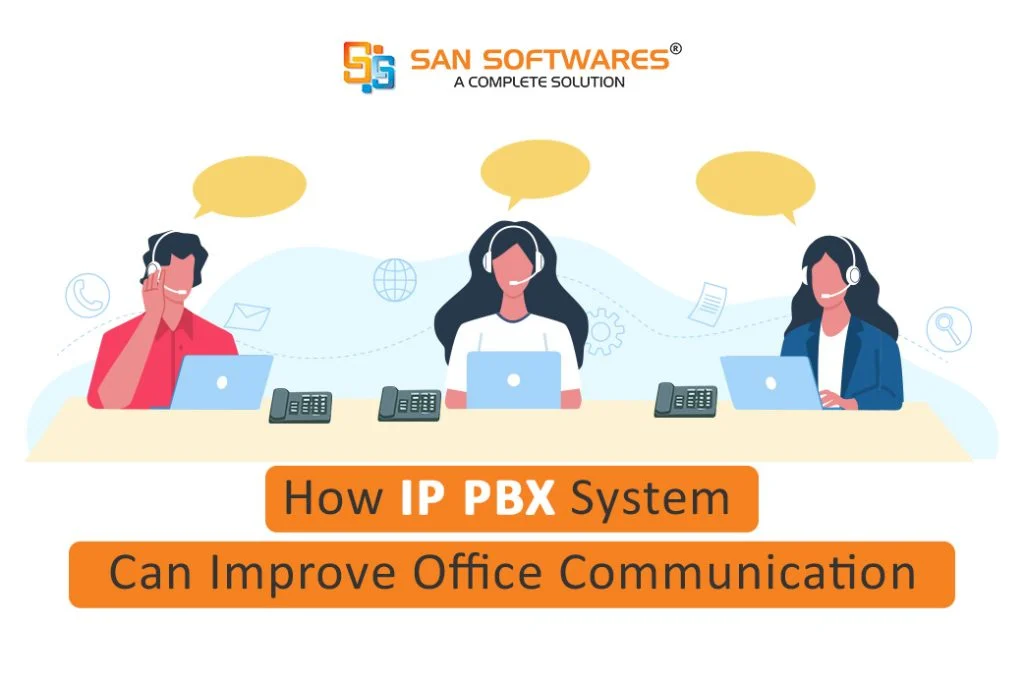
Effective communication is the backbone of any successful organization. As businesses grow and evolve, the need for a reliable, scalable, and efficient communication system becomes paramount. One such solution that has proven to be indispensable in modern office environments is the Private Branch Exchange (PBX). Office PBX systems, whether traditional or cloud-based, can significantly enhance office communication.
Here’s a detailed look at how IP PBX can transform your workplace communication and drive business success.
A PBX system acts as a central hub for all office communication. It connects internal phones within a company and routes incoming and outgoing calls efficiently. This centralization streamlines communication by ensuring that calls are directed to the right departments or individuals without unnecessary delays. Employees can easily reach their colleagues by dialing a simple extension number, improving internal communication flow.
Modern IP PBX systems come with advanced call management features such as call forwarding, call waiting, voicemail, and interactive voice response (IVR). These features enable businesses to handle calls more effectively. For instance, if a team member is unavailable, calls can be forwarded to another colleague or to a voicemail system, ensuring no call goes unanswered. IVR systems can help direct callers to the appropriate department without needing a human operator, saving time and resources.
One of the significant advantages of PBX systems, particularly cloud-based ones, is their scalability. As your business grows, your communication system can grow with it. Adding new lines or extensions is straightforward and often doesn’t require significant hardware changes. This flexibility ensures that your communication infrastructure can adapt to the changing needs of your business without incurring prohibitive costs.
PBX systems, especially those that utilize Voice over Internet Protocol (VoIP) technology, can be more cost-effective than traditional phone lines. VoIP PBX systems reduce the need for separate phone lines for each employee and can significantly lower the cost of long-distance and international calls. Additionally, maintenance and operational costs are reduced as many PBX systems can be managed virtually, eliminating the need for extensive physical infrastructure and on-site IT support.
Modern IP PBX systems can integrate seamlessly with other business applications such as Customer Relationship Management (CRM) software, email, and collaboration tools. This integration can enhance productivity by providing employees with a unified communication experience. For example, integration with CRM allows employees to access customer information during calls, improving customer service and support.
With the rise of remote work and flexible office environments, mobility has become a critical aspect of business communication. PBX systems support this need by offering features like mobile extensions and softphones. Employees can make and receive calls on their smartphones or laptops as if they were at their office desk, ensuring that business communication remains uninterrupted regardless of their location.
Security is a crucial consideration in business communication. PBX systems come with various security features such as encryption, secure VoIP, and firewalls that protect against unauthorized access and eavesdropping. Ensuring secure communication channels helps protect sensitive business information and maintains the integrity of your communication system.
Office PBX systems offer a myriad of benefits that can significantly improve office communication. From enhanced call management and centralized communication to cost efficiency and improved mobility, PBX systems provide a robust solution for modern business needs. By adopting a PBX system, businesses can not only streamline their internal and external communication but also enhance productivity, security, and their overall professional image. In an era where communication efficiency can make or break a business, investing in a PBX system is a strategic move towards sustained growth and success.
Also Read: Why Do Businesses Need to Invest in IP PBX Software?
SAN Softwares is a company dedicated to providing complete software solutions to Corporate and end-user customers.

SAN Softwares is a company dedicated to providing complete software solutions to Corporate and end-user customers.

© 2026 SAN Softwares Pvt Ltd | All Right Reserved